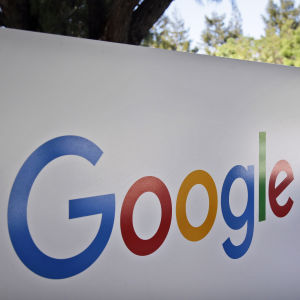The Department of Justice earlier this year announced an antitrust lawsuit against Google, claiming the company had used anticompetitive tactics to monopolize the online advertising industry.
This is the latest lawsuit against Google, alleging it monopolized search engines. It goes to trial September 12.
Despite Justice’s claims of anticompetitive behavior, Google’s initial success —fueled by significant early investments — played a major role in allowing the company to grow. It is difficult to separate Google from its advertising successes. Competition for online advertising continues to grow despite this advantage.
Justice claims Google has been working to establish dominance in the online advertising market by establishing itself on all sides of the transaction. This includes facilitating transactions between businesses looking for ad space and popular websites selling ad space. The control of buying and selling online advertisements is known as a full ad tech stack.
While Google is a significant force in online advertising, having a large market share is not enough to violate antitrust law. Google owes much of its success to two significant factors. One is its innovative approach to searching the internet, and the second is its ability to secure large investments early.
Money isn’t everything. Even with a major investment, Google would not have made it as far as it had without genuinely good ideas and services. What made Google successful was its ideas on how to make searching the internet more intuitive. At the time, their biggest competitor, Yahoo, sought to catalogue the internet in much the same way as a physical library. In contrast, Google did away with strict categories and instead prioritized search results by cross-referencing to search entire pages in a more natural way to find the information the user is seeking.
Another factor that made Google a success was its substantial early investment. By 1999, Google was able to raise $25 million in equity funding. By comparison, Yahoo secured $2 million when it was incorporated.
A strong idea, plus money to support it, allowed Google to become a force in search engines to the point where the term Google has become a verb meaning to search the web. This, as even the Justice complaint agrees, put Google in a position to grow in a way that businesses considered it essential to advertise through their systems, prompting growth in advertising.
While Google’s size and reach allowed it to become a giant in the online advertising industry, Justice’s claims that Google is deliberately acting in a way that undermines competition are not reflected in the realities of the market. Google is indisputably the leader, but other platforms have been growing significantly.
Major companies such as Microsoft and Amazon have been expanding their online advertising presence, with Microsoft using full ad tech stack services, the same model Justice has labeled anticompetitive in Google’s case, putting it in a better position to compete with Google.
In addition, TikTok has seen a boom in advertising, with the company expected to make $13.2 billion from advertising revenue in 2023, especially among younger people.
Rather than having a stranglehold on competition, Google appears to be an early leader to whom many other players are beginning to catch up. Consumers are also benefiting from the increased competition and innovations in the form of lower or flat fees for online advertising and more streamlined services.
While Google is big now, that does not mean it will continue to be. Just as Google’s initial success derived from their novel approach to searching the web, new developments such as Bing AI have the potential to upend the status quo, much like how Google replaced Yahoo as the dominant search engine. This lawsuit assumes that the market will stay the same as it is today, ignoring the history of tech companies and how competitors have risen quickly to overtake seemingly unstoppable giants.
Yes, Google is big. But that is not enough to warrant antitrust lawsuits. Between Google being able to build from its success as a search engine and the state of competition and its effect on prices in online advertising, Justice’s lawsuit does not reflect the reality. The agency should consider the effect on consumers rather than focusing too narrowly on size.


